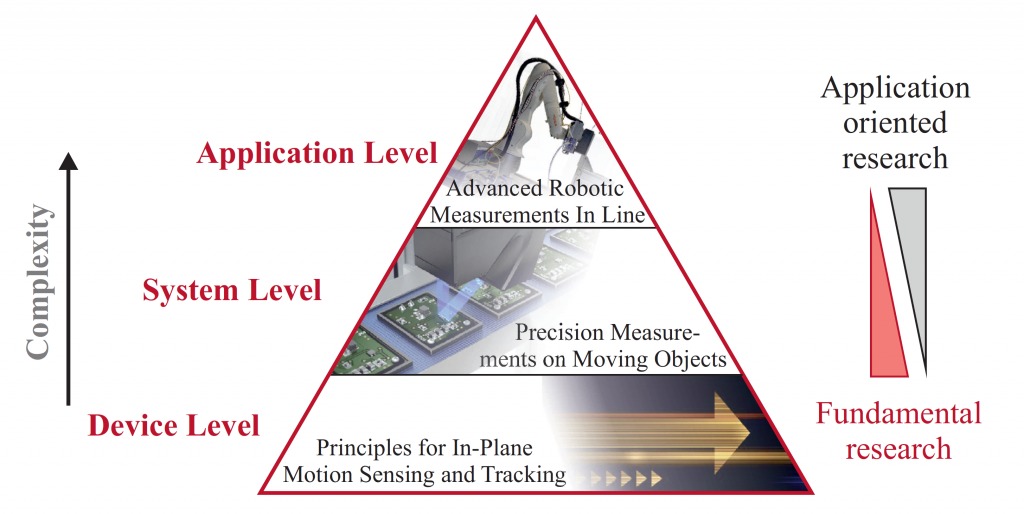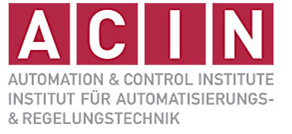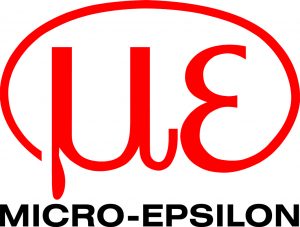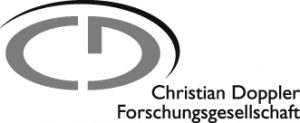Christian Doppler Laboratory for Precision Measurements in Motion
Head of the laboratory: Associate Prof. Dipl.-Ing. Dr.techn. Ernst Csencsics
Start: September, 1st 2023
The Christian Doppler (CD) Laboratory for Precision Measurements in Motion develops methods for precision 3D measurements on continuously moving samples and principles for in-plane displacement sensing, as well as advanced robotic inline measurement systems. The goal is to provide a performance and reliability that is comparable to laboratory-based measurements directly in the production line.
Measurement systems are indispensable for modern day industrial production, as the precision of manufacturing systems can never be better than the measurement system that guides the control of the production process. Current optical inline measurement systems are appropriate for many of today’s applications requiring moderate precision. However, they are clearly not suited for the increasing demands on throughput and precision in the micro- and sub-micrometer domain of advanced production systems, due to the measurement precision being significantly limited by motion-induced image blur. In order to keep pace with these ever-growing demands on speed, precision, and flexibility, measurement systems are required that can handle relative motion effects and provide a comparable performance and reliability as laboratory-based measurement systems.

Research areas overview. On the device level fundamental research is conducted on in-plane motion sensing principles, enabling the compensation and correction of sample motion for precision measurements on the system level. Developed concepts are integrated into advanced robotic measurement systems for inline use on the application level.
By integration of optical 3D sensing principles, mechatronics and control, the CD-laboratory investigates fundamental concepts for advanced inline measurement systems, which can dynamically establish local lab-like conditions between the sample and a respective optical measurement tool. For this purpose, opto-mechatronic methods for the active real-time compensation of relative motion between sample and measurement tool as well as for the subsequent correction of acquired measurement data based on precisely captured sample motion data will be developed. To optimize the tradeoff between motion compensation and motion correction, the research follows an integrated system design approach, considering all involved system components and inter-dependencies. For enabling the, up to now inaccessible, precise and real-time capable measurement of in-plane motion of arbitrary, non-structured technical surfaces, optical sensing principles and integration methods will be developed. Additionally, the research focuses on new data processing strategies for high throughput measurements and advanced learning-based measurement and processing algorithms to design and implement the control and correction systems for achieving the required system functionality. The holistic set of developed methods will push the performance limits of inline measurements by minimizing the motion-induced uncertainty component and yield the most efficient system architecture for enabling high precision 3D measurements on moving samples in a given application.
The research results of the CD Laboratory in terms of new contact-less in-plane displacement sensing methods (iTRACK) as well as compensation and correction methods (mEMO) will enable unique solutions of advanced robotic inline measurement systems (aRMIN), capable of providing an efficient 100% quality inspection with a comparable performance and reliability, which is currently only achievable with laboratory-based equipment.
The scientific work in the CD-Laboratory covers the following research areas:
- Principles for In-Plane Motion Sensing and Tracking (iTRACK)
- Precision Measurements on Moving Objects (mEMO)
- Advanced Robotic Measurements In Line (aRMIN)



